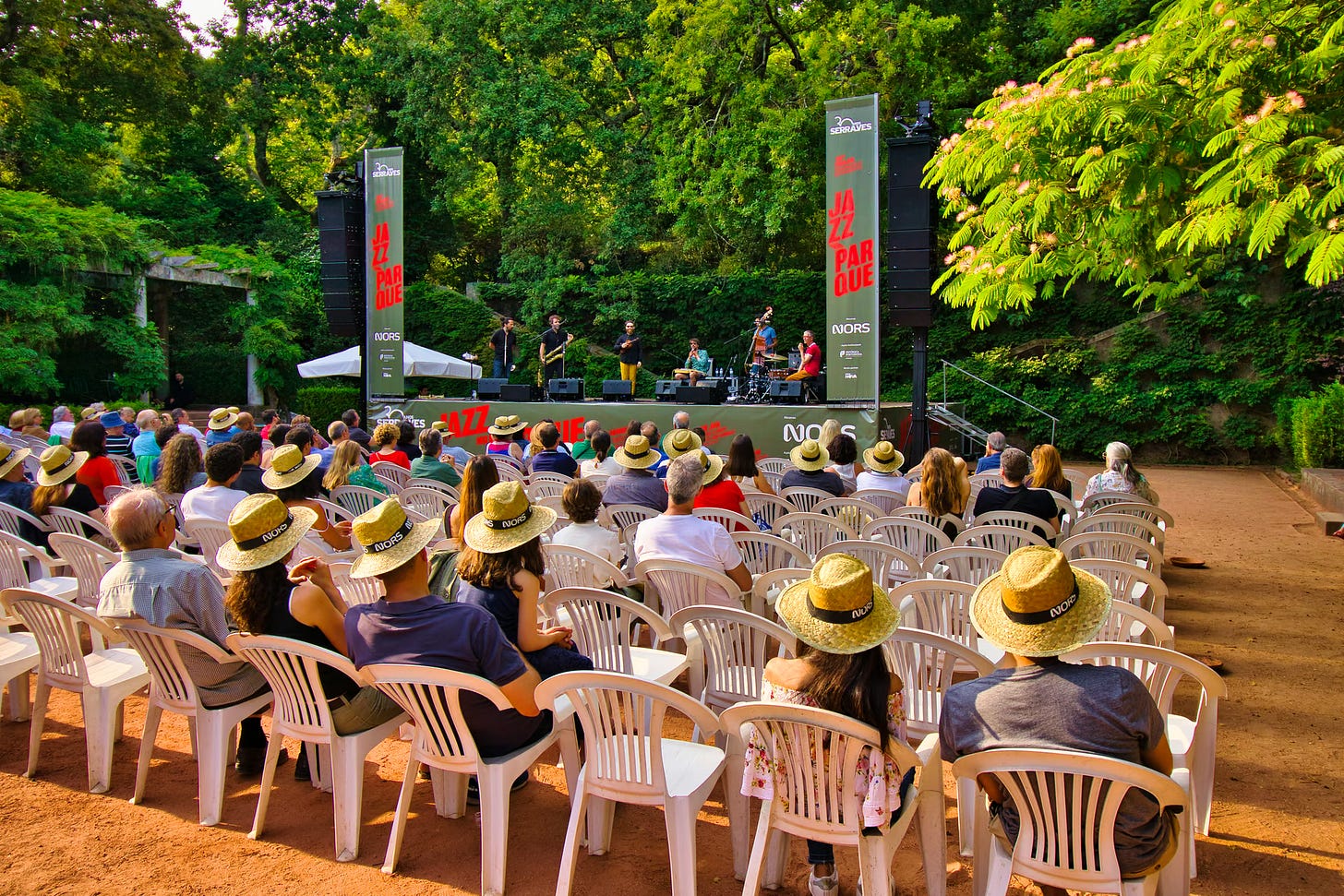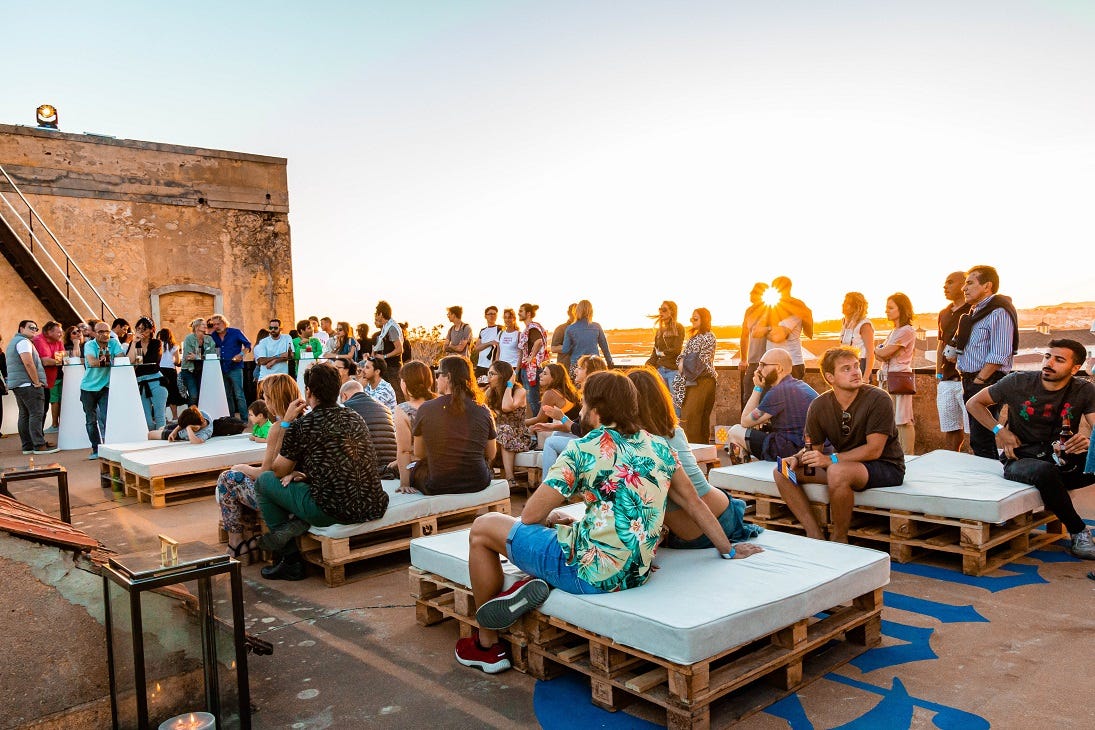Friday Briefing: D-Day for the immigration overhaul
Good morning and welcome to PORTUGAL DECODED. Today Parliament debates immigration reform. With the Socialists opposing the proposals, the government is turning to overnight negotiations with Chega.
TALK OF THE TOWN
If you enjoy reading PORTUGAL DECODED, please consider donating to keep it free and independent – your generosity means everything!
POLITICS
The Socialists have a new leader: José Luís Carneiro is a moderate, who became Home Affairs Minister during the SEF-to-AIMA transition. He must now lead a party regrouping after a major electoral defeat in May 2025 (More).
The Government has scheduled local elections for October 12. It nearly overlaps with the deadline for the 2026 State Budget submission (October 10), suggesting an attempt to leverage the budget process to sway voters (More).
SOCIETY
Last Sunday, Portugal recorded its hottest June day ever, with 46.6ºC in Mora, Alentejo. Reports say the heatwave caused 69 excess deaths, mostly among the elderly, as climate experts warn of intensifying risks due to climate change (More).
The Health Minister, already under fire over a string of scandals, faced renewed scrutiny after the death of a newborn at Lisbon’s Santa Maria Hospital, following the mother’s repeated attempts to receive care at five different facilities (More).
ECONOMICS
Domestic tourism drove growth in overnight stays in May, which rose 1.3% to 7.8 million. U.S. visitor numbers increased, while Brazilian arrivals declined. Revenue grew 8.7% to €717 million, with Lisbon leading earnings (More).
Bank heads from the U.S., Japan, Korea, the UK and the EU convened in Sintra this week for the annual Central Banking Forum. Meanwhile, Portugal’s inflation rose slightly to 2.4% in June, while eurozone inflation hit the ECB’s 2% target (More).
CULTURE AND SPORTS
The football world is in shock after Portugal and Liverpool forward Diogo Jota, 28, and his brother, 25, died in a car crash in Spain in the early hours of Thursday, just weeks after his wedding and Portugal’s Nations League victory (More).
Portugal’s football women team, known as the Navegadoras (“Navigators”), suffered a heavy 0-5 defeat to Spain in their Euro 2025 opener last night, dealing a blow to hopes of reaching the knockout stage for the first time (More).
If you enjoy reading PORTUGAL DECODED, please consider donating to keep it free and independent – your generosity means everything!
DECODER
How did we get here?
In an effort to secure backing for its proposed changes to the nationality law and immigration rules, set to be debated and voted on in Parliament today, the Government held meetings with the three main opposition parties: the far-right Chega, the Socialist Party (PS), and the Liberal Initiative (IL). Talks began Wednesday afternoon with Chega and IL. Initially, no statements were made, but by Thursday, IL publicly announced its support, citing an “exceptional situation” requiring “exceptional measures.” Party spokesperson Mariana Leitão said IL was “broadly aligned” with the government’s proposals. Chega’s André Ventura, however, pushed for stricter limits on family reunification and broader grounds for revoking nationality in criminal cases. He then requested a second meeting, this time directly with PM Luís Montenegro, which took place Thursday afternoon. The government also met with the Socialist Party early Thursday morning, at 8:45 a.m.

How did President Marcelo position himself on the matter?
On Wednesday, as the government met with Chega and the Liberal Initiative, President Marcelo, never one to stay on the sidelines, told journalists he would be closely monitoring the process, particularly for potential constitutional concerns. He stressed that upon receiving the final legislation, his first step would be to assess whether there are any doubts about its constitutionality. While acknowledging that some aspects may not be “clearly unconstitutional,” Marcelo said that a referral to the Constitutional Court could provide legal clarity and prevent varied interpretations by lower courts. He also said that he had not yet read the government’s proposals and recognised the possibility of political disagreement in his eventual assessment. Previously on Saturday, the President had already urged political leaders to approach immigration policy with wisdom and balance. He warned against decisions that could increase fear or insecurity among communities or undermine Portugal’s role on the global stage. “The key is to find an approach in this area that doesn’t fuel fear, doesn’t increase insecurity, isn’t damaging for those leading the country, and doesn’t erode a fundamental pillar of our presence in the world,” Marcelo said.

What came out of the government’s meeting with the Socialist Party?
Newly elected Socialist Party (PS) leader José Luís Carneiro described Wednesday’s meeting with the government as “inconclusive.” He said the PS had proposed sending the immigration bills to committee for review and negotiation before any plenary vote (meaning that the vote should not take place today). While open to improving the legislation, Carneiro stressed that the PS could not support measures that “violate the Constitution,” such as the retroactive loss of nationality. He also rejected the government’s proposed changes to family reunification rules and the legal status of citizens from Portuguese-speaking African countries (PALOP). None of this came as a surprise. Carneiro had already voiced his opposition following a meeting with the President on Tuesday, stating: “As it stands, the legislation has no conditions to receive our support.” He urged the government to create space for negotiation, particularly on more sensitive provisions. Carneiro reiterated the PS’s support for “regulated, safe migration” and criticised the lack of government responses on key issues like housing, education, and integration.
What about the government’s meeting with Chega?
After meeting PM Luís Montenegro on Thursday, Chega leader André Ventura said his party and the government had found “a common platform” on key issues, particularly immigration. However, he stopped short of confirming how Chega will vote, stating that “details are still being finalized overnight”. Ventura described the meeting as “cautious but confident,” noting alignment on tightening immigration rules and restricting access to nationality. While the government rejected Chega’s proposal to suspend family reunification rights, considering it “too radical”, Ventura said there is willingness to compromise on other measures. These include allowing the revocation of citizenship for naturalized individuals convicted of serious crimes within ten years of acquiring nationality, and changes to deportation rules for undocumented migrants. Ventura said he gave the PM a firm assurance that these shared priorities would be developed further in committee discussions.
What happens now?
In the most likely scenario, if the government’s proposed changes to Portugal’s nationality law and immigration rules receive initial approval in Parliament tomorrow with Chega’s support, the bills will move to committee for the specialty stage. There, members can propose amendments, hold hearings, and request expert input to assess the proposals in detail. After review, the revised bills will return to plenary for a final article-by-article vote and overall approval. However, given Chega’s history of backtracking on commitments, the government is adopting a wait-and-see approach. Indeed, not all proposals may be voted on this Friday. In a more cautious scenario, the government could withdraw the bills before the vote and continue negotiations with parties, resubmitting the proposals to Parliament only once broader agreement is secured. All options remain on the table. So stay put.
TIPS OF WEEK
Lisbon
Vivienne Westwood: The Tigress’s Leap
From June 7 to October 12, MUDE – Museum of Design presents a tribute to the legendary British designer who redefined contemporary fashion. Curated by fashion historian Anabela Becho, the exhibition draws on Walter Benjamin’s idea of the “Tiger’s Leap” to show how Westwood (1941–2022) mined the past to challenge the present. Featuring around 50 pieces, from 18th-century garments to punk-era designs, the show highlights Westwood’s subversive use of tradition: tartan, tweed, corsets, crinolines, and more. It also explores her construction mastery and her political activism, from environmental campaigns to anti-establishment statements. From her anarchic King’s Road boutique to the world’s biggest runways, Westwood fused rebellion with elegance. Punk icon and OBE-turned-Dame, she remains a defining voice in fashion. This exhibition captures her radical spirit and lasting influence.
Porto
Jazz in the Park
Over the first two weekends of July (July 5, 6, 12, and 13) Serralves Foundation will once again host Jazz no Parque, curated this year by acclaimed musician Rodrigo Amado. Set on the old clay tennis courts, the festival opens on July 5 at 5pm with States of Restraint, featuring Gonçalo Almeida, Susana Santos Silva, and Gustavo Costa in a free-form sonic exploration. At 6:30pm, Old Mountain brings a poetic, melancholic tone, led by Pedro Branco on piano and drummer João Sousa. On Saturday, Another State of Rhythm takes the stage with José Soares (saxophone) and dual bassists João Hasselberg and Hernâni Faustino. Sunday highlights solo pianist Alexander Hawkins at 5pm, followed by Eve Risser and vocalist Nainy Diabaté at 6:30pm. On July 12, legendary bassist Joëlle Léandre performs at 5pm, followed by the electrifying trio MOVE. The festival closes on July 13 with Peter Evans, Petter Eldh, and Jim Black, a trio of contemporary jazz powerhouses.
Maia
Crafts Fair
From July 5 to 14, the artisans return to Maia, filling the city with color, joy, and tradition. The 18th edition of this fair brings together craftspeople from across Portugal, showcasing both age-old traditions and contemporary creations. Alongside handmade goods, visitors can enjoy regional delicacies like pão com chouriço (‘bread with chorizo’) from Marco de Canaveses, cheese and sausages from Mirandela, and traditional sweets from Fão, Santo Tirso, and Alverca, all paired with wild berry sangria from Santa Maria da Feira or the famous Ginja from Óbidos. The fair also features a lively cultural program with performances by local folk groups. As always, the last Saturday is dedicated to children and families, offering playful ways to introduce younger audiences to Portugal’s traditional arts. This year also includes a daily Kids Zone with inflatables and activities at Parque Central, as well as workshops and mini-rides throughout the fairgrounds. Full program here.
Faro
Açoteia - Faro Rooftop Festival
On July 4–5, from 6pm to midnight, Faro’s rooftops come to life for the 4th edition of this unique festival. For two days, visitors can access over 30 normally closed rooftops across the city, enjoying 200+ cultural, musical, and immersive experiences with stunning views of Faro and the Ria Formosa. Rooted in Islamic tradition, açoteias were once working spaces, now reborn as stages for community, creativity, and sustainability. This transformation aligns with the European Creative Rooftop Network, uniting Faro with cities like Amsterdam, Barcelona, and Gothenburg to rethink rooftop use. Highlights include concerts atop Igreja do Carmo and sky-gazing from the convent tower at Faro’s Municipal Museum. Each rooftop offers a unique experience, from intimate moments to large gatherings. Entry: €5/day (cash only, at the door; free under 12). First come, first served. Some spaces may have limited capacity. Full program available here.
AND SINCE IT’S SUMMER…
…it’s the perfect moment for a longer read.
In today’s edition, PORTUGAL DECODED is delighted to feature a guest article by Alexandra, a fellow substacker at Blog Therapy, freelance editor and writer based in Porto, who shares a thoughtful reflection on navigating social life as an expat in Portugal.
Read it here.








